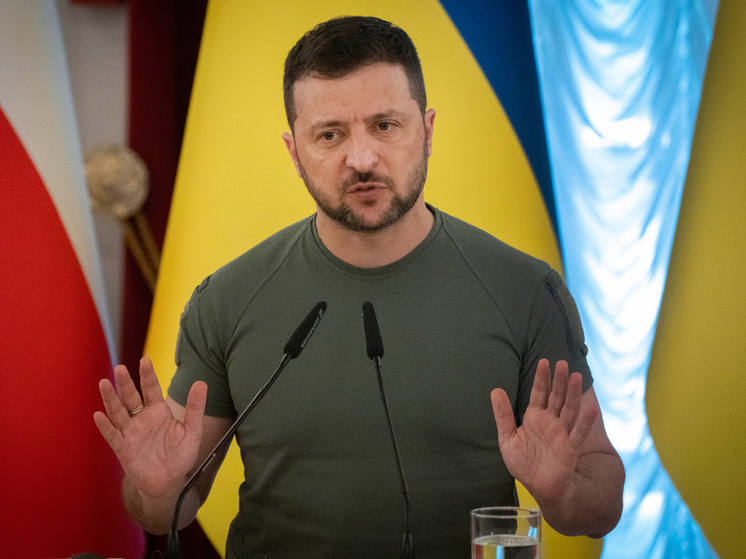But only «from a position of strength» and not now
Watching the timely processes in the international arena, one can easily conclude: the art of diplomacy in 2023 has come down to who is louder he will shout at everyone and whoever is the most offensive of all will nail the «partner» to the pillory. But «chants» and «nails» are just an outer shell, a screen that will loom before our eyes until some internal processes lead to the emergence of a new screen with a slightly different content. The good old (well, okay, it's not always good) diplomacy hasn't gone anywhere.
And I'm not talking only about the secret negotiations of the parties, which, if they already exist, we will learn much later. I'm also talking about sending important political signals in plain sight. Each of us is familiar with a special kind of intellectual puzzle: two outwardly completely identical pictures, between which it is required to find differences. There are such puzzles in politics too. And here is one of them — an article in the mouthpiece of the American political establishment The Washington Post about the recent secret visit of CIA Director Bill Burns to Kyiv.

At first glance, everything in this text is sustained in the usual style for modern times: the counteroffensive of Ukraine, bickering over the supply of new types of American weapons, official Kiev’s complaints that you are “delivering little” and “expect too fast results from us.” But we all know that we need to «look for differences.» And you won't have to do it for a long time.
“In preparation for the fall, Zelenskiy and his senior staff began to think about how Kiev could force a halt to the fighting on terms that are acceptable to Russia and to the Ukrainian people, who have had to endure a year and a half of violence.” A short phrase, but so many real political revolutions!
According to The Washington Post, Zelensky admitted that the terms of any peace agreement must be «acceptable to Russia.» Previously (and even now, if we focus on what the Ukrainian authorities say in the public space), this approach was anathema to official Kyiv.
Second revolution: Zelensky admitted that the conflict must end with a peace agreement (there is still talk in the public space about the inevitable military victory of Ukraine). The third revolution: Zelensky transparently hinted that the “Ukrainian people” are tired of “violence” and it would be nice to free them from this (officially, Kiev declares its readiness to fight to the bitter end).
And here is the fourth revolution — no longer of a general nature, but spelled out to the smallest detail: “In an ideal scenario that Kiev likes, the Ukrainian armed forces will gain leverage over Russia by pushing troops and powerful weapons to the edge of Ukraine’s border with Crimea, taking hostages a peninsula home to Russia's much-valued Black Sea Fleet…
According to Ukrainian officials, by agreeing not to take Crimea by force, Kiev will in exchange demand that Russia accept any security guarantees Ukraine can get from West.
Zelensky’s official “ideal scenario” is the return of Crimea and the “1991 border.” But, as we see, behind closed doors, functionaries from Kyiv are discussing much more modest “ideal scenarios” with their American colleagues.
According to the Washington Post version, Ukraine is ready to commit itself “not to try to return Crimea by force” — that is, to leave it to Russia. Of course, this is «compliance» with a double bottom. «Russia's acceptance of any security guarantees that Ukraine can receive from the West» is Moscow's agreement with the actual entry of official Kyiv into NATO. The meaning of NATO is precisely “security guarantees” (the notorious fifth article of the charter of the alliance), and not at all a “membership certificate” in a beautiful printing design. But, nevertheless, Zelensky’s appetites are decreasing.
Another thing also draws attention to itself: such a compromise with Moscow, according to strategists in Kiev, is not an alternative to the success of the current Ukrainian counteroffensive, but the desired outcome of this counteroffensive. The outcome, which, according to the Americans, is by no means guaranteed.
Another quote from The Washington Post: «Military analysts say Ukraine's goal of forcing [Moscow] into negotiations is ambitious, given Russia's heavily fortified defenses, but not impossible.» In American political Newspeak, «ambitious» is synonymous with «elusive» or even «unrealistic.» The conclusion is obvious: even having «lost a lot of weight», Zelensky's new «ideal scenario» still remains «too well-fed».
Of course, while all these conclusions are from the category of «written with a pitchfork in the water.» Assessing once in a private conversation the real size of his own powers, Chairman of the Council of Ministers of the Russian Empire Pyotr Stolypin said that he had «not power, but only a shadow of power.»
About future constructive negotiations between Moscow and For the time being, Kiev can only say roughly the same thing: there is no certainty that such negotiations will take place. There is only a shadow of such confidence, which may well not reflect reality. But the article in the Washington Post, you see, is interesting. It's just that such texts do not appear.


